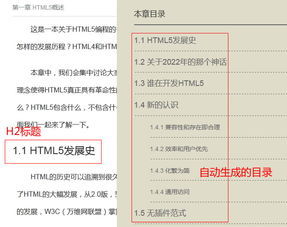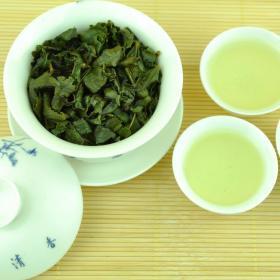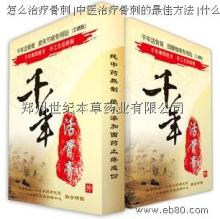- 到底用“content”还是“contents”呢?
- (转自旧版"三脑学习网"原发布时间:2010-4-7)
到底是用“content”还是“contents”呢?
摘要:
A. 几乎总是用contents的情况:
1.当contents指包、袋、箱子、容器等等内的“内容”时(the contents of abox, bag, bottle, building, or room…)
…the contents of the chest proved themwrong.
但海底沉箱内的物品证明他们弄错了。(新概念英语第三册)
Now cups say, "caution, contents are hot".
现在纸杯上都印着“内有热饮,小心烫口。”(CNN英语材料)
2.当contents指书或杂志的目录时(a list at the beginning of a book ormagazine)
I can't find it in the contents. (MacmillanEnglish Dictioanary)
B. 几乎总是用content的情况
用于名词之后指“容量; 含量”(amount of sth contained in sthelse):
the silver content of a coin硬币中银的含量(牛津高阶词典)
food with a high fat content 脂肪含量高的食物.(牛津高阶词典)
C. 既可以用content也可以用contents的情况(注:我的建议首先是依据原版词典的例句,其次是来自google和其他语料库里面用关键词搜索后所得的结果比较)
1. 都可以用,但建议用content
the content(s) of thewebsite/show/essay/meeting/article/one’s character
2. 都可以用,但建议用contents
the content(s) of the letter/document/
…he had managed to learn the contents of theletter by heart.
他已将信的内容记熟了。 (新概念英语第三册)
下面是全文:
昨天在新浪微博上看到AngryEditor发表了一篇名为《“Content”还是“contents”呢?》的博客文章。http://blog.sina.com.cn/s/blog_6259ad390100iayl.html拜读之后,觉得小有收获。顺便打开Lingoes,成热打铁一下,不料却产生了疑惑。AngryEditor在文中的总结是:“总体来讲,contents是指具体的事物,而content则是指抽象的。当然,这个规则有好多例外,但把它当roughguide肯定没问题。”
来看看我的求解过程.
下面引用的是《牛津高阶英汉双解词典》第4版里面content作名词的用法和例句:
1. contents[pl] that which is contained in sth 所容纳之物; 所含之物; 内容:
the contents of a room, box,bottle, pocket 屋﹑ 盒﹑ 瓶﹑ 衣袋里的东西
* The drawer had been emptied ofits contents. 抽屉已经腾空了.
* She hadn't read the letter andso was unaware of its contents. 她没有看那封信, 所以不知道信的内容.
* At the front of the book is atable of contents, giving details of what is in the book.书的前部有目录, 详列了书中的内容.
2. [sing] that which is written orspoken about in a book, an article, a programme, a speech, etc (书﹑文章﹑ 节目﹑ 演说等的)内容:
The content of your essay isexcellent, but it's not very well expressed. 你那篇文章的内容好极了,但是表达方式不太好.
3. [sing] (preceded by a n 用於名词之後) amount of sth contained in sth else 容量; 含量: thesilver content of a coin 硬币中银的含量
* food with a high fatcontent 脂肪含量高的食物.
可以看到,用AngryEditor的总结来看基本是符合的。只有用法2和用法1里面的这个例句让人觉得不解:
She hadn't read the letter and so was unawareof its contents. 她没有看那封信, 所以不知道信的内容.
“letter”(信件)的内容为什么用contents,而books,articles,还有speeches等的内容却要用“content”呢?于是我查看了很多词典的解释,发现其他词典解释都与牛津不同。
Longman词典说:
the things that are written in a letter, booketc这个含义时用contents of
Macmillan词典说:
contents [plural] the things that are written ina book, magazine, letter, document, etc.:
The contents of the document remain secret.
《柯林斯高级英语词典》第5版(Collins)则比较圆滑,谁也不得罪:
If you refer to the content orcontents of something such as a book, speech, or televisionprogramme, you are referring to the subject that it deals with, thestory that it tells, or the ideas that it expresses.
*She is reluctant to discuss the content of theplay...
*The letter's contents were not disclosed.
按照它这个解释,似乎你用content或者contents都可以了。
所以看来这个问题,词典学家们也没有达成一致。AngryEditor邀请我总结一个更详细的,我只能勉为其难地综合几本词典的解释和在网上搜索例句的结果来小结一下了:
A 几乎总是用contents的情况:
1当contents指包、袋、箱子、容器等等内的“内容”时(the contents of abox, bag, bottle, building, or room…)
…the contents of the chest proved themwrong.
但海底沉箱内的物品证明他们弄错了。(新概念英语第三册)
Now cups say, "caution, contents are hot".
现在纸杯上都印着“内有热饮,小心烫口。”(CNN英语材料)
2当contents指书或杂志的目录时(a list at the beginning of a book ormagazine)
I can't find it in the contents. (MacmillanEnglish Dictioanary)
B 几乎总是用content的情况
用于名词之后指“容量; 含量”(amount of sth contained in sthelse):
the silver content of a coin硬币中银的含量(牛津高阶词典)
food with a high fat content 脂肪含量高的食物.(牛津高阶词典)
C 既可以用content也可以用contents的情况(注:我的建议首先是依据原版词典的例句,其次是来自google和其他语料库里面用关键词搜索后所得的结果比较)
1都可以用,但建议用content
the content(s) of thewebsite/show/essay/meeting/article/one’s character
2 都可以用,但建议用contents
the content(s) of the letter/document/
…he had managed to learn the contents of theletter by heart.
他已将信的内容记熟了。 (新概念英语第三册)
 爱华网
爱华网



